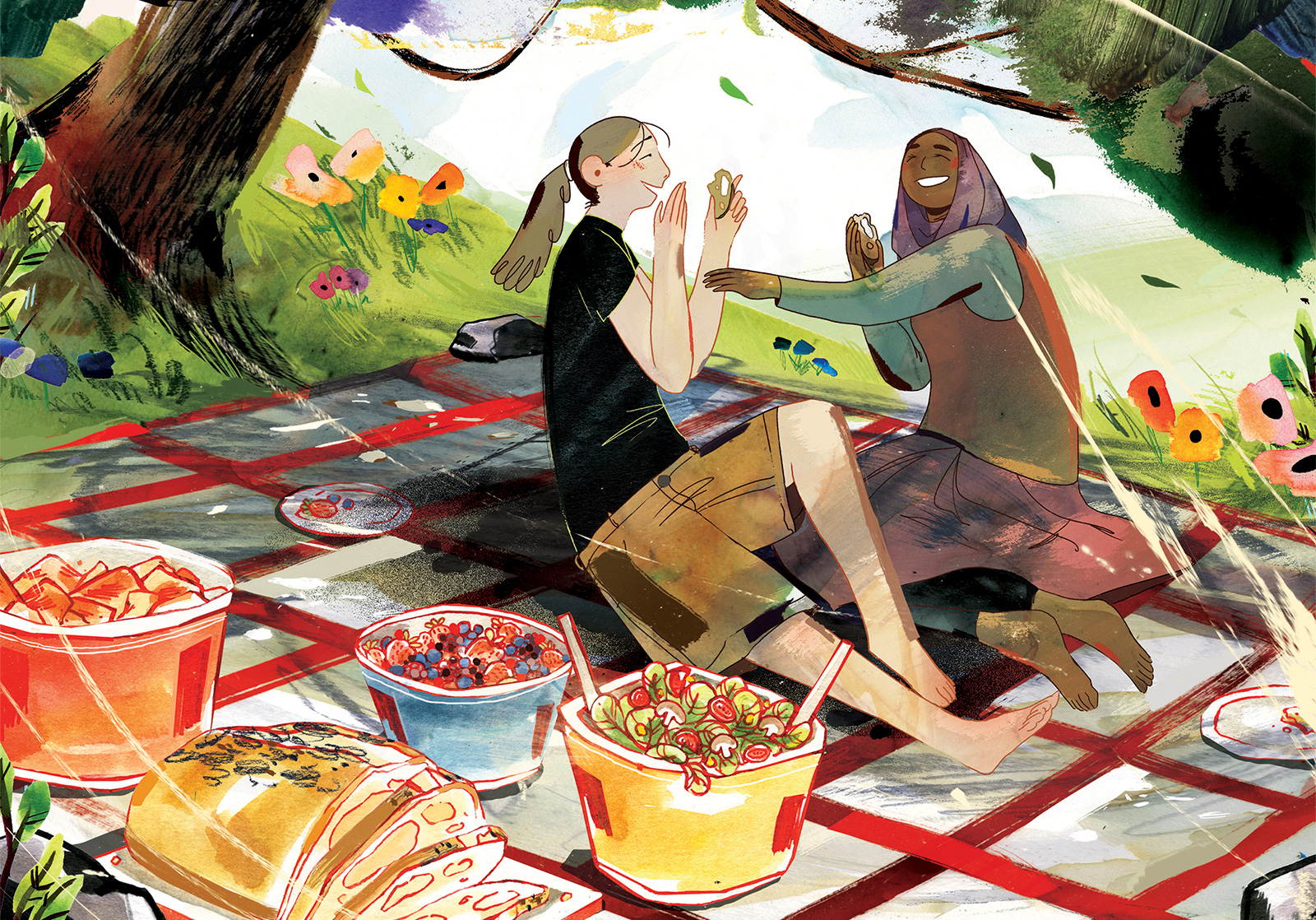Imagine a loaf of bread, quartered.
This first quarter, still warm from the oven, is simple - bread solves hunger.
Another quarter brings you a friend, your companion. Your cultural worldview determines whether you share this quarter early on or you wait a while. Perhaps you even share it first, before you partake.
Then there is the quarter that you trade for something to eat with that bread, a most basic version of trade economy.
The final quarter builds long-term security. By sharing it, you are creating more companions, who may have, when one day you lack. Or you may sell it and reinvest this fruit of your labour.
Still again, you may set it as exemplar, to help transmit this knowledge so fundamental to civilization - how to transform grain into bread.
Mind you, you could just go to the store and buy a sliced loaf. It's cheaper. In today's Canada, says Amy Kaler, associate chair of the Department of Sociology, making bread by hand is not about physical necessity, as in rural, non-industrial communities. Here, it is about identity, and connection among people.
"Loneliness is one of the surprising factors in food insecurity," says Juanita Gnanapragasam, '19 MPH, '16 BSc. For her, making and breaking bread together is one key to combating food insecurity among foreign students, the focus of her research.
Gnanapragasam has been surprised and gratified by students' response to her work - never more so than when she offered an evening workshop on making roti.
"I'd expected 12 to 17 students, but within three hours, over 80 had signed up! And in January, the darkest, coldest part of the year," she says.
Cooking and eating alone provokes homesickness, so students often rely on takeout. And some young students may have limited experience in the kitchen. Roti is simple - flour, water and salt, shaped by hand, fried. Still, participants showed great pride in their hand-built creations, and the making transformed strangers into friends.
Once they have prepared roti in a group, Gnanapragasam says, "they find it's easy to do it again."
Maryann Baziuk (Chorney), '76 BEd, makes ceremonial breads to maintain her Ukrainian heritage, and passes the skill on to her daughters. Kolach, the most famous of these breads, graces church altars, marks weddings, births and funerals, and honours significant relationships.
In this spirit, Baziuk offered kolach last summer to Darlene Auger, '02 BA, to launch Ancestors & Elders, a performance project exploring 125 years of Alberta's Cree and Ukrainian history. Auger responded in kind with an offering of tobacco. Of her bread offering, Baziuk said: "It symbolized how important we feel it is to bring these communities together, to work together in good faith."
Whether it's a simple fried roti or an elaborately braided Ukrainian kolach, bread connects us to the land, our own abilities and each other. Bread carries history.
And what of the future?
As Kaler says, here and now we don't need to make bread by hand. Our staples rest in a web of industrialized agriculture and international trade. So, what happens if that web is torn? If climate change causes industrial-scale crop failures? If the uneasy political tides of this moment also rise in unpredictable ways?
Imagine a day when we have only the food we can make.
Build a loaf of bread, by hand. Quarter it.

We at New Trail welcome your comments. Robust debate and criticism are encouraged, provided it is respectful. We reserve the right to reject comments, images or links that attack ethnicity, nationality, religion, gender or sexual orientation; that include offensive language, threats, spam; are fraudulent or defamatory; infringe on copyright or trademarks; and that just generally aren’t very nice. Discussion is monitored and violation of these guidelines will result in comments being disabled.